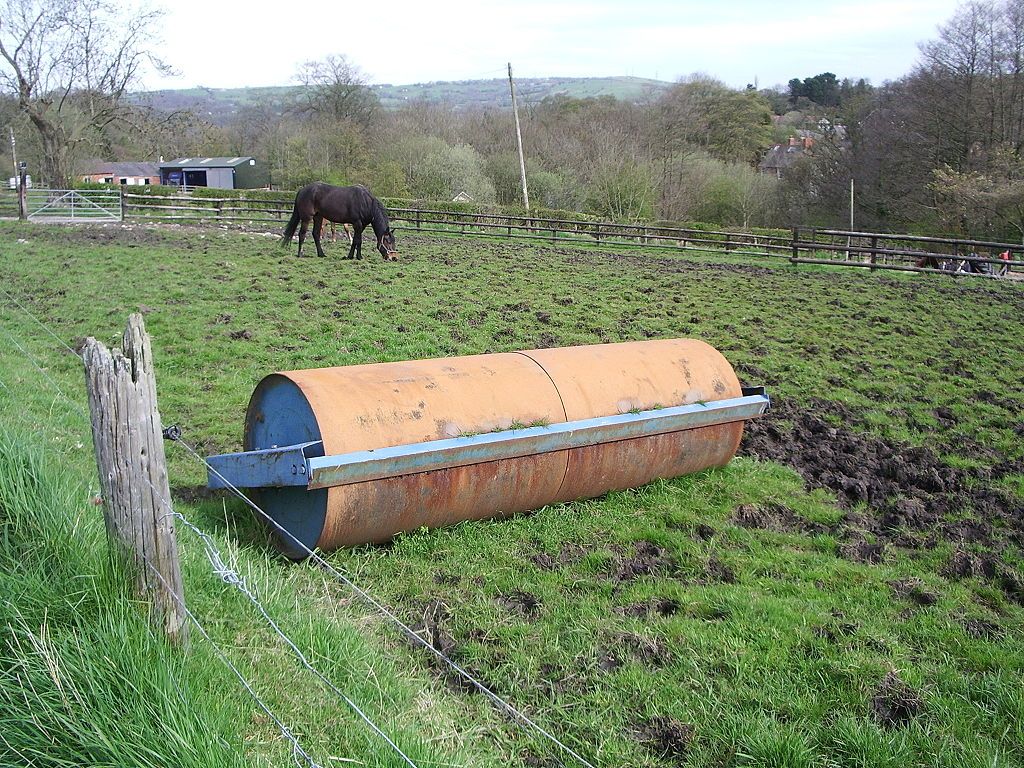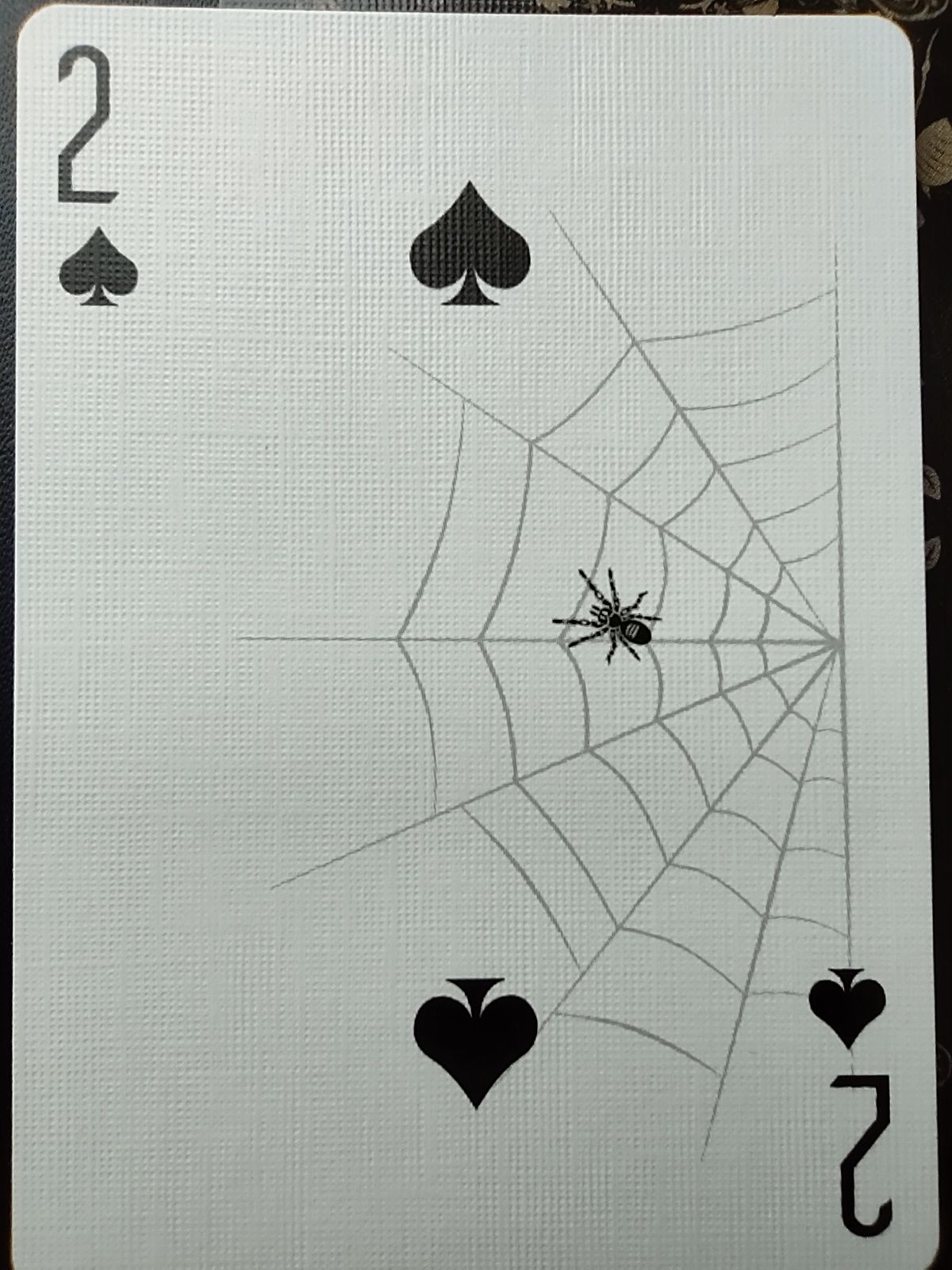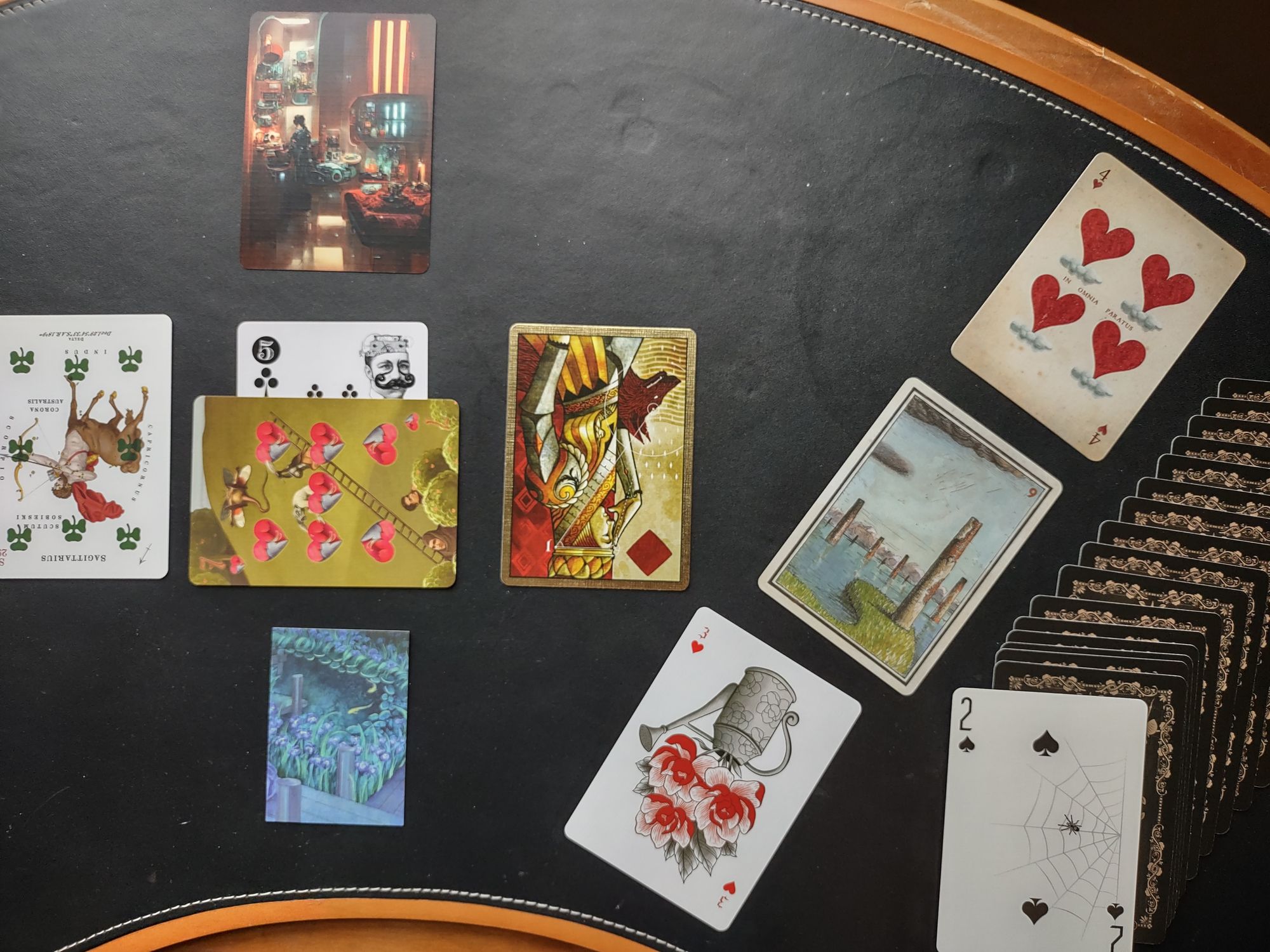X: Roller
A tale of two Rollerball movies.

Good morning. Today is décadi, the 30th of Brumaire, Year CCXXXI. We celebrate the end of this misty month with le roulau, a machine for finishing your plowed field.
In 1975, a strange and not-very-good science fiction film called Rollerball was released to lukewarm reviews. Starring the late great James Caan and directed by Norman Jewison – a director only eight years past directing Best Picture winner In the Heat of the Night – the movie concerns a then-distant future (2018) in which corporations have united to destroy nations and institute world peace and the complete obedience of the population. In order to keep said population mollified, they invented a sport. Yes, this is Hunger Games 40 years earlier.
This sport, called rollerball, consists of two teams of seven roller skaters and three motorcyclists (!) sharing a rink around which a heavy silver ball careens around. The roller skaters try to grab the ball and shove it into a small goal hole. The motorcyclists get in the way and cause mayhem. It's basically violent quidditch.
James Caan plays a roller skater who accidentally comes to fame after 10 consistent years of excellent play. His corporation asks him to retire, because the engine that makes the world peace work is a complete denial of individual gifts in exchanges for social harmony, and a star athlete punctures that myth. (Why such a fragile social compact would be held together by a spectator sport people rabidly root for is one of the movie's many head scratchers.) Caan refuses to retire, so the corporations make the game more and more violent in an attempt to kill him. Of course, this leads to better and better ratings, and Caan survives it all. It's one of those very 1970s movies that advocates for both peaceful global cooperation and the awesomeness of rebellion at the same time. The Cold War made everything weird.
The movie would be largely consigned to a flop on a director's otherwise sparkling resume and a cult favorite if it weren't for a strange remake in 2002 that led to absolute obliteration of one of Hollywood's biggest directors.
John McTiernan was the action movie director of the '80s and '90s. He rocketed to fame on the back of Predator and Die Hard, then continued with solid hits like The Hunt for Red October and The Last Action Hero. Well, maybe that last one wasn't a "solid hit." While it made box office that would sparkle in today's climate, the summer blockbuster tentpole starring Arnold Schwazenegger at his height just didn't live up to expectations, and McTiernan blamed its failure on bad buzz that circulated before the movie release, buzz he believed was generated in industry media by Hollywood insiders who, for some reason, hated him. In other words, the film's less-than-glorious performance made him a wee bit paranoid.
A few years later, McTiernan directed a remake of The Thomas Crowne Affair starring Pierce "Still James Bond Then" Brosnan – a significantly different adaptation of the Norman Jewison-produced original – and it flopped.
I can't prove that McTiernan's paranoia made him determined to do another remake of a Jewison film to prove that his films were being sabotaged somehow, but that's what happened next, as he went to Montreal to film a Rollerball remake starring Chris Klein (hot off American Pie), Rebecca Romijn-Stamos (hot off X-Men), Jean Reno (hot off Godzilla), and LL Cool J (still not calling it a comeback).
The story this time is almost an inverse. Instead of being set in a utopian/dystopian future, the setting was now-ish (2005) in the former Soviet bloc countries, where corporations run amok are running a sports league called rollerball that gets increasingly huge ratings. Klein is recruited and is a rookie, not a wily veteran, and he spends the entire film trying to quit the sport, not stay in it. The violence of the games is still ramped up, but this time just for ratings, and Klein recruits other players to lead a revolt against the evil owners.
Gone are the heady themes of conformity versus individualism, replaced instead with a straightforward Spartacus tale with overtones of "workers of the world unite."
The movie sucks, by the way. Do not watch it, under any circumstances.
It cost $70 million to make, way over MGM's budget partially because at one point the entire set caught on fire. Upon flopping to only $29 million, McTiernan's stock could not have sunk any lower. He struggled to make one more film (you haven't heard of it, despite it starring John Travolta and Samuel L. Jackson) and that was it.
Because in 2006, the FBI arrested McTiernan for illegally wiretapping the phone of his producer on Rollerball. McTiernan was apparently convinced that the producer had lit the fire that sent him over budget, and leaked the bad buzz that led to no box office, and was generally out to get him. So McTiernan made the fatal error of hiring a man named Anthony Pellicano.
Pellicano was known as Hollywood's go-to private investigator. He had invented a phone-tapping technology he called Telesleuth, and garnered a rumored client list of Hollywood's elite who all madly scrambled to spy on and backstab each other using this fully illegal service. Pellicano got busted and sentenced to 15 years of hard time, a sentence so long mainly because he refused to share with the feds who any of his clients were. Because of his mobster's attitude, the FBI had no choice but to chase down the few clients they could prove had hired him. One was Chris Rock, but they didn't come by that recording legally enough to use it in court.
The other was John McTiernan.
See, McTiernan was desperate to find out if Pellicano had dug up any proof that his producer was lying and stabbing him in the back, and the two had a long and very explicit and very recorded phone call about it. Eventually, having learned nothing, McTiernan paid Pellicano and closed the investigation. Still, the damage had been done.
The irony is that Telesleuth's actual recordings were so encrypted, even the FBI couldn't crack the code, which is why the client list was impossible to obtain without Pellicano's cooperation, and why there's absolutely no evidence that Pellicano even wiretapped the producer to begin with. He may have just been playing McTiernan for a sucker, taking the money and making up a bunch of nothings to string him along.
Meanwhile, McTiernan screwed things up from the jump, pleading guilty, then reversing his plea when he found out his lawyer hadn't even told him the right chargers, then getting new charges for lying in court with conflicting statements. After multiple appeals including an attempt to get before the Supreme Court, McTiernan was finally sentenced to a year in prison in 2010.
Throughout all of this, the director was defiant that he hadn't done anything morally wrong, that he was right about being targeted (he believes it's because of a documentary he made about Karl Rove's election malfeasances), and that the entire system was corrupt. This attitude did not help him with the judges he stood before. Nor did it win him friends in Hollywood. He hasn't worked on a major motion picture – or any full-length movie – ever since.
In other words, McTiernan was a superstar 10-year veteran of the most popular entertainment in a nation ruled by corporations, then forced into retirement through increasingly suppressive means. The movie he made sucked and missed the point of the original completely, but somehow he orchestrated an astounding real-life remake of Norman Jewison's Rollerball.
Today's card: 2 of spades

Click for a recap of the story so far...
We are poking around at a relationship that is burning bright and hot (7♥), and we want to know if it has the energy to sustain itself (5♣), because the atmosphere, while welcoming, doesn't feel permanent (external vibe), and we're not sure if we're invited to take part (internal vibe). This new thing might just be an echo of the past (8♣), and our crush seems distractable (J♦). The indication is that we're looking for this crush to take a specific action (3♥), while a trusted friend is telling us to cut and run (9 smokestacks), and they're probably right (4♥).
It's been a long and exhausting reading about a new relationship that burst into your life and quickly consumed it and, to be honest, I hope none of this is spot-on for any of you. If it is, I hope you find a way to exit soon, even though, I'm sorry to say, you're going to need some time to recover. The outcome card indicates that you will be completely drained of energy to do much at the conclusion of this brief of torrid encounter. In fact, you may be laid low long enough for cobwebs to form.
As always, I'm open to any suggestions for a specific query to consider in the next décade's tableau. This concludes the misty month of Brumaire. Onward to the frosts of Frimaire!




